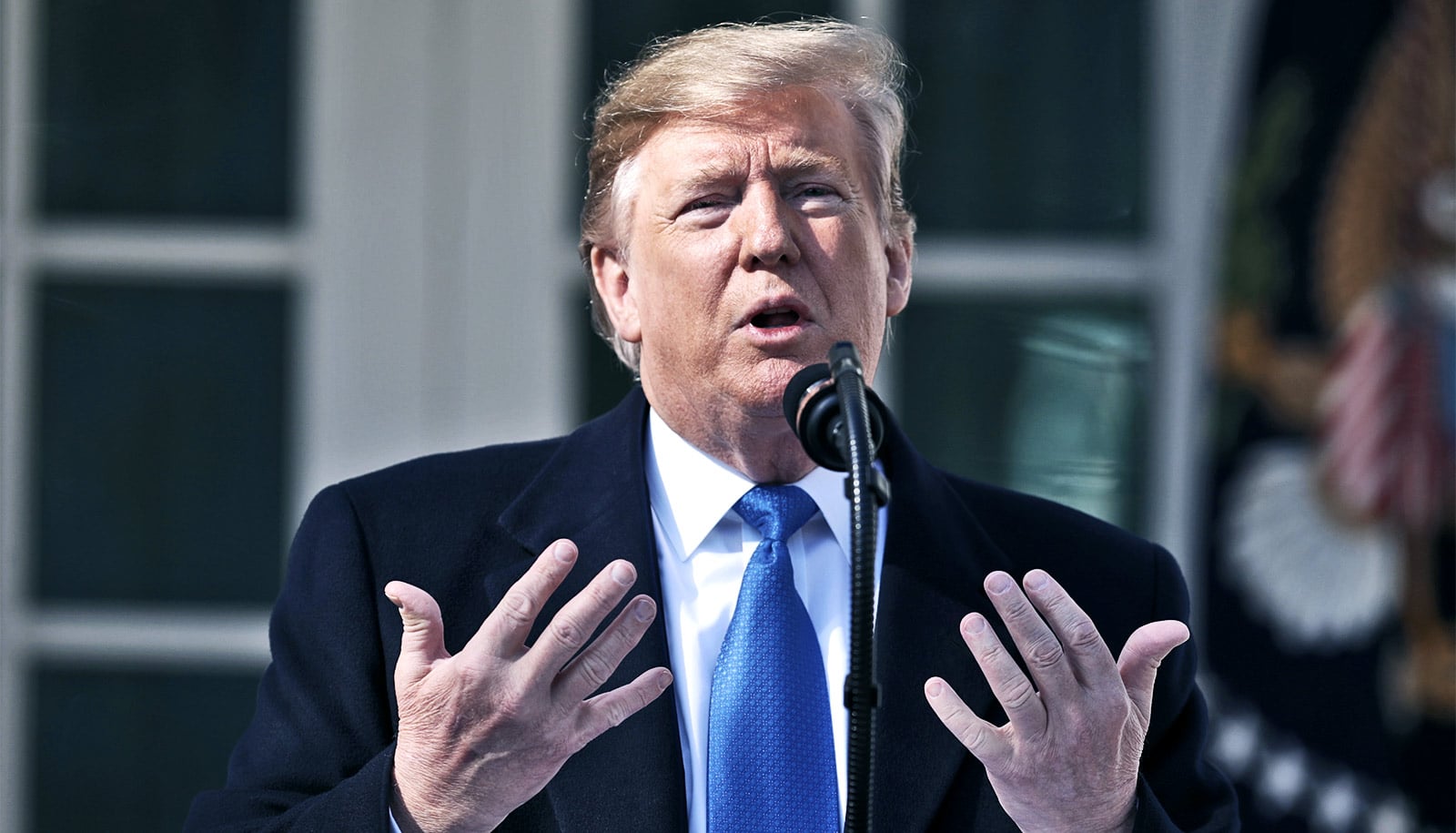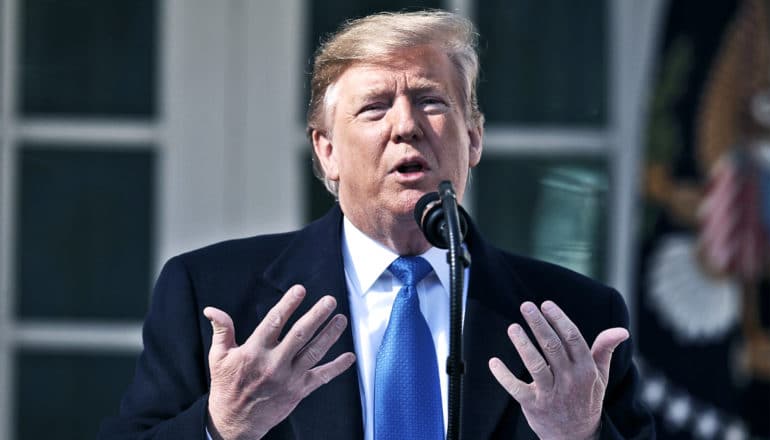
President Donald Trump speaks on border security during a Rose Garden event at the White House February 15, 2019 in Washington, DC. (Credit: Chip Somodevilla/Getty Images )
What does a national emergency mean for presidential power?
When an American president declares a national emergency, what does it mean for the country? A presidential powers scholar brings you up to speed.

When an American president declares a national emergency, what new executive powers emerge?
That question is on the minds of many in the wake of President Donald Trump’s February 15 declaration in order to move forward with securing funds to construct a wall or barrier along the US-Mexico border—an action he took after his administration failed to obtain its requested budget for the wall from Congress.
The declaration now faces a slew of legal challenges and is under scrutiny by members of Congress who recently approved a resolution to terminate the declaration in the House of Representatives. The Senate plans to vote on the resolution in March.
Elizabeth Goitein, codirector of the Liberty & National Security Program at New York University Law’s Brennan Center for Justice, led the creation of a database that outlines presidents’ powers and their uses during national emergencies. She is also author of The New Era of Secret Law, a report that discusses how government officials have amassed power over the years through non-democratic processes.
Here, Goitein discusses the legality of Trump’s declaration, and the broader implications it may have for the country.
The post What does a national emergency mean for presidential power? appeared first on Futurity.
Share this article:
This article uses material from the Futurity article, and is licenced under a CC BY-SA 4.0 International License. Images, videos and audio are available under their respective licenses.


